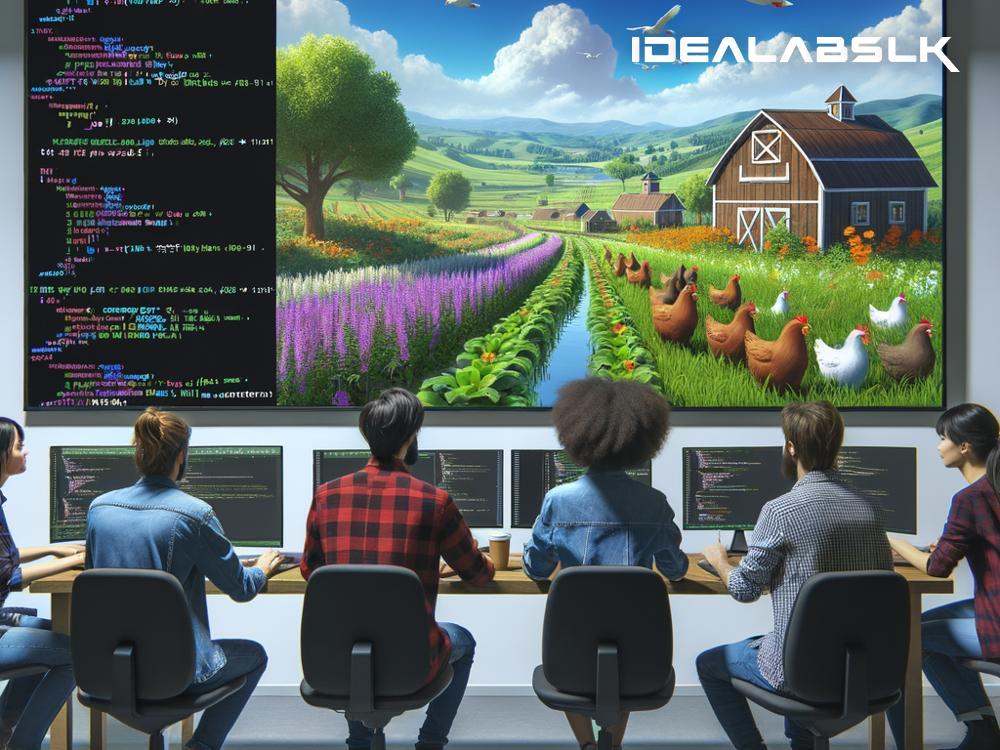How AI Will Revolutionize Realistic Simulation Games Like Farming Simulator 23 by 2025
The world of video games is on the brink of a transformation, one that's set to redefine what we consider 'realistic'. As we look towards 2025, the dawn of advanced Artificial Intelligence (AI) technologies in gaming, especially in realistic simulation games like Farming Simulator 23, shows promise of an unprecedented era of interactive experiences. Let's dive into how AI is expected to change the game, quite literally, and make the virtual farming world more lifelike than ever before.
AI-Powered Game Environments: A New Dawn
Currently, games like Farming Simulator 23 impress with their detailed environments and complex simulations. However, they still operate within predefined limits. Enter AI. By 2025, AI technologies will have progressed to a point where game environments can adapt dynamically, offering a tailored experience that responds to each player’s actions in real-time.
Imagine planting crops, and the AI system calculates the exact amount of sunlight, rain, and care needed for them to grow, based on real-world agricultural practices. This could lead to scenarios where unexpected weather changes, pest invasions, or other real-life farming challenges emerge, requiring players to adapt their strategies, making the game more engaging and educational.
The NPCs: More Than Just Background Characters
Non-player characters (NPCs) in games currently follow scripted patterns, which can feel repetitive and predictable after a while. With the integration of AI, NPCs in simulation games like Farming Simulator 23 will display behaviors and personalities that evolve. This means AI-driven NPCs could remember past interactions with players, offer spontaneous help or challenges, and even develop unique relationships with each player, much like real human relationships.
This level of interaction promises to enrich the gaming experience by making it feel like you’re truly part of a living, breathing world. Need help with your crops or machinery? An NPC could offer real advice or assistance, based on a cultivated friendship or previous exchanges.
Real-Time Learning and Adaptation
One of the most exciting prospects of AI in simulation games is the potential for real-time learning and adaptation. By 2025, AI systems could analyze how players engage with the game, learning from their actions to adjust game mechanics and scenarios on the fly.
For example, if you prefer to focus on livestock farming over crop farming, the game could dynamically generate more livestock-related content, challenges, and rewards, making your gaming session more personalized and engaging. This adaptive learning could also extend to difficulty settings, ensuring that the game remains challenging yet achievable, keeping players motivated and engaged.
Education Through Simulation
Farming Simulator 23 and similar games have always had an educational component, teaching players about agriculture, business management, and the value of hard work. With AI, this educational aspect can be taken to a whole new level. By accurately simulating real-world farming challenges and solutions, players could learn valuable lessons about agriculture strategies, environmental conservation, and sustainable farming practices.
In effect, AI could transform these games into interactive learning platforms, providing insights and knowledge that extend far beyond the game world and into real-life applications.
The Challenges Ahead
While the potential for AI in realistic simulation games is immense, there are challenges to consider. The development of such advanced AI systems demands significant investment in terms of time, money, and talent. Moreover, there’s the essential aspect of balancing AI-driven content to ensure that the game remains fun and doesn't become too complex for casual players.
Privacy and data security are also crucial, especially with games that learn and adapt based on player behavior. Developers will need to navigate these issues carefully to deliver on the promise of AI-powered simulation games while safeguarding player data.
Looking Towards the Future
As we look towards 2025, it's clear that AI is set to redefine what's possible in realistic simulation games like Farming Simulator 23. By creating more dynamic, responsive, and personalized gaming experiences, AI will not just simulate reality; it will bring it to life in the virtual world.
If the gaming industry can navigate the challenges, we're on the cusp of an era where playing a game feels like living an alternate reality, complete with all the unpredictability, challenges, and satisfaction that comes with it. The fields are ripe for innovation, and AI is the key to unlocking a new generation of simulation games that blur the line between game and reality.

